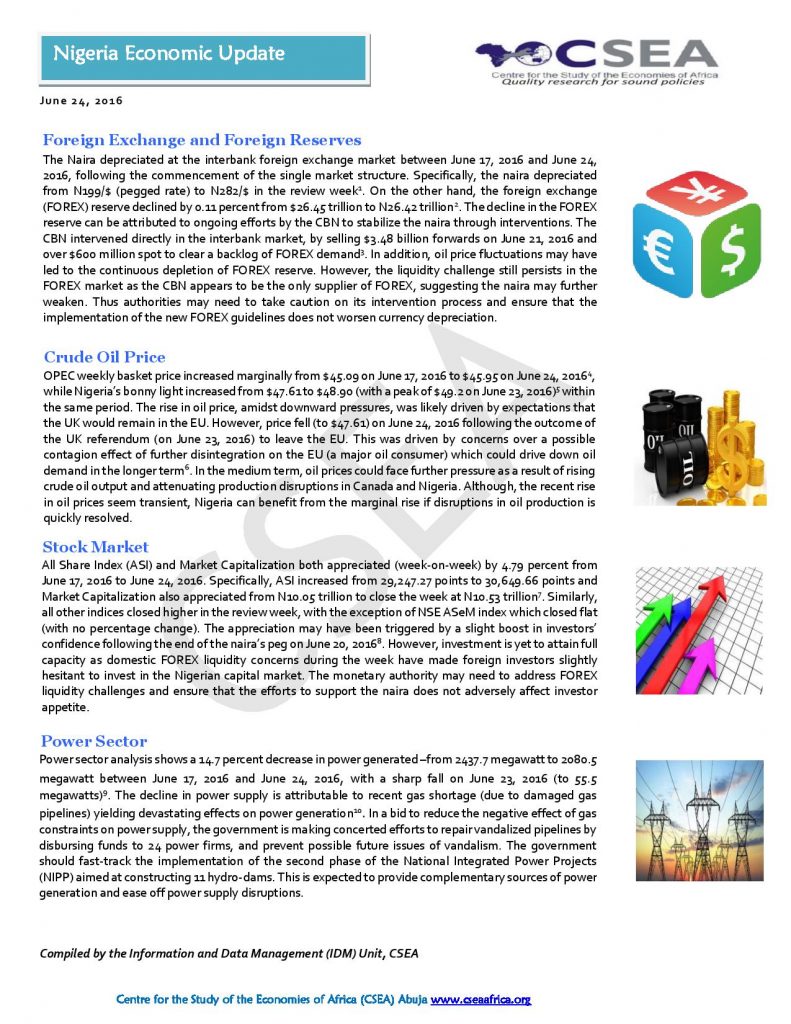Macroeconomic Report & Economic Updates

June 30, 2016
Nigeria Economic Update (Issue 28)
OPEC
weekly basket price increased marginally from $45.09 on June 17, 2016 to $45.95
on June 24, 2016, while Nigerias bonny light increased from $47.61
to $48.90 (with a peak of $49.2 on June 23, 2016)within the same
period. The rise in oil price, amidst downward pressures, was likely driven by
expectations that the UK would remain in the EU. However, price fell (to
$47.61) on June 24, 2016 following the outcome of the UK referendum (on June
23, 2016) to leave the EU. This was driven by concerns over a possible
contagion effect of further disintegration on the EU (a major oil consumer) which
could drive down oil demand in the longer term. In the medium term, oil prices could face
further pressure as a result of rising crude oil output and attenuating production
disruptions in Canada and Nigeria. Although, the recent rise in oil prices seem
transient, Nigeria can benefit from the marginal rise if disruptions in oil production
is quickly resolved
